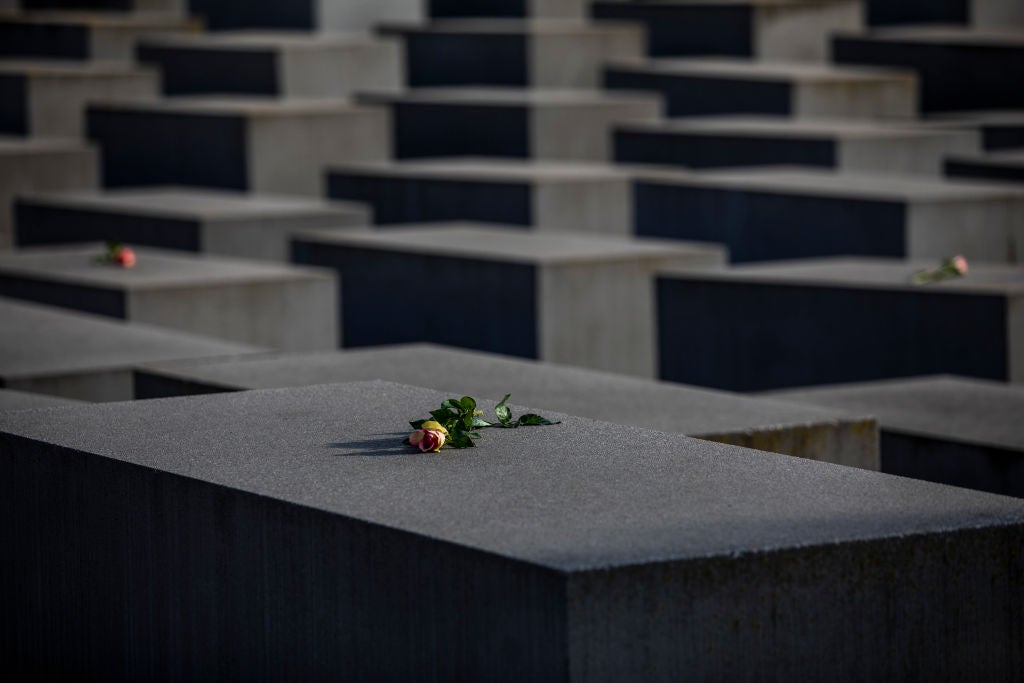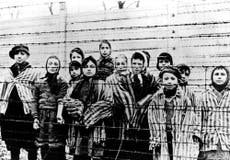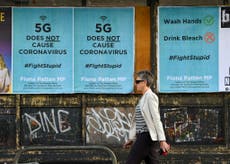The ugly truth of the Holocaust should never be suffocated by propaganda and conspiracy
History is full of horrors, like slavery and the Capitol riots, but physical reminders allow us to never forget the truth


Your support helps us to tell the story
From reproductive rights to climate change to Big Tech, The Independent is on the ground when the story is developing. Whether it's investigating the financials of Elon Musk's pro-Trump PAC or producing our latest documentary, 'The A Word', which shines a light on the American women fighting for reproductive rights, we know how important it is to parse out the facts from the messaging.
At such a critical moment in US history, we need reporters on the ground. Your donation allows us to keep sending journalists to speak to both sides of the story.
The Independent is trusted by Americans across the entire political spectrum. And unlike many other quality news outlets, we choose not to lock Americans out of our reporting and analysis with paywalls. We believe quality journalism should be available to everyone, paid for by those who can afford it.
Your support makes all the difference.Holocaust Memorial Day is a good moment to think about how and when we memorialise historic events. Over the summer we witnessed a revolt about honouring slave traders and the like, even if inadvertently honoured and sometimes unknowingly. Statues and monuments are an expression of thanks by a community, and a warning from history. They fail if a community no longer wishes to thank the person and if the known reality of that history is partial or distorted.
Public memorials should be, in some sense, truthful. The people who tore down the statue of the slave owner Edward Colston were right because the inscription and the statue did not represent the truth. The neo-Nazi who took a hammer to the bust of (the then jailed) Nelson Mandela on London’s South Bank in the 1980s was attacking a truth he did not like. Looking back at history and looking at the current fashion for conspiracy, statues and memorials serve as a physical, permanent, undeniable reminder of what took place – the truth. Apart from variable artistic quality, that is the use of them.
That is why US senator Mitt Romney is right to suggest that part of the Capitol damaged by protesters and insurrectionists should be preserved in its present vandalised state, and in situ. Already there are people circulating the idea it was a “false flag” attack, orchestrated by Antifa or Black Lives Matter, and drawing all manner of bogus moral equivalencies.
As the years roll on, layer upon layer of conspiracy and propaganda will bury and suffocate the truth, until someone comes up with the idea that it was all staged by Hollywood – like the moon landings – and then covered up. The “myth” of the Capitol invasion will be that it was perpetrated like the Roswell incident or the Kennedy assassination (you can take your pick from Russians, aliens and Lyndon Johnson). The attack on the Capitol was a physical attack on the very fabric of democracy, and the ugly proof should be left there.
There are excellent precedents for Senator Romney’s proposal. After much of the House of Commons was destroyed by bombing raids in the Blitz, Winston Churchill ordered that parts of the broken stonework be retained and rebuilt after the defeat of the Nazis. Today, MPs and visitors pass under the visibly bomb-damaged Churchill Arch every time they walk from central lobby to the debating chamber, a constant reminder of the war and the destruction it brought, and with so much symbolic force in that case. The same goes for the poignant ruins of Coventry Cathedral, and those preserved villages in Europe, left as they were after reprisal massacres and deliberate destruction. Prayers, books, documentaries and school lessons are all part of memorialising, but so are those physical remains.
In a way, there is no alternative to them. One of the most moving and persuasive cases for a prominent memorial to the murder of European Jewry was made by TV presenter David Baddiel in a remarkable film earlier this week, Confronting Holocaust Denial, during which he engaged in conversation with a Holocaust denier, and sat through a rendition of a breathtakingly cruel antisemitic folk song composed by his interlocutor. I have rarely seen such brave, restrained and civilised behaviour like that of Baddiel’s, and his point was well made.
Having composed himself, Baddiel sat in Victoria Gardens, next to parliament, and explained that this was where the new Holocaust memorial is to be built, and it is there to be noticed, for it will dominate that site. It needs to be big because it has to match the scale of the denial of the racial murder of 6 million people.
As Baddiel explained, history – another word for the truth – matters. All too clearly, there will always be deniers and haters, and genocidal maniacs, who want to tell lies about the past for their own purposes. The opportunities they have to spread their propaganda have been vastly magnified by the internet. Years ago, all they had was a photocopier or maybe a printing press, and they had to dish out the lunacy on rainy street corners.
Now deniers can tweet their inhumanity to the whole of humanity. They have to be confronted, not just because they are dangerous people with malign intent, but also because it is they who want to “cancel” the past, to say the death camps are a myth and so on. They are also the same people who tend to want to make light of slavery, and to distort history. Memorials are a testament to truth, and humanity tends to forget the unpleasant. We need more of them.



Join our commenting forum
Join thought-provoking conversations, follow other Independent readers and see their replies
Comments